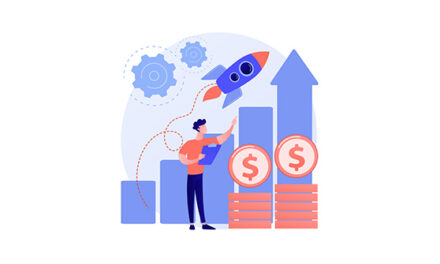Key Takeaways
- Salesy refers to an aggressive sales and marketing approach characterized by high-pressure tactics, exaggeration, and a lack of authenticity.
- Salesy behavior harms the customer experience, trust, and business reputation, leading to higher churn and legal risks.
- Strategies include genuine relationships, problem-solving, honesty, training, a customer-centric culture, content marketing, feedback, realistic expectations, and excellent customer support.
- Be cautious of overly salesy language, such as limited time offer, act now, too good to be true, and many more as they can create a sense of urgency or hype without providing concrete information.
In the bustling world of commerce, where products and services vie for our attention, the term “salesy” emerges as both a buzzword and a cautionary tale.
But what does “salesy” really mean, and why should you care? Imagine a relentless salesperson employing high-pressure tactics, promising the moon, and leaving you skeptical at best.
That’s the essence of “salesy.”
It’s the art of selling turned abrasive. In this exploration, we’ll dive deep into its definition, unravel its characteristics, and discover why it’s a concept that carries profound implications for businesses and consumers alike.
So, fasten your seatbelts as we embark on a journey to understand salesy meaning in the ever-evolving landscape of sales and marketing.
Discover how to be a highly effective salesperson who builds trust, adds value, and achieves success by putting the customer first.
So, let’s dive in and learn how to ask for the sale without being pushy and how to be a salesman without being a salesman.
Let’s begin by examining the “salesy” definition.
What does salesy mean?
Salesy, often written as “sales-y,” refers to a sales and marketing approach characterized by aggressive persuasion techniques, exaggeration, and a lack of authenticity.
It is an approach that focuses more on pushing a product or service onto customers rather than addressing their needs or building a genuine connection.
Why does “Salesy” matter?
In the realm of sales and marketing, the concept of being “salesy” holds significant importance due to several compelling reasons:
Impact on the Customer Experience
- Negative customer perceptions
Salesy tactics often lead to negative perceptions among customers. When individuals encounter aggressive or insincere sales techniques, they can feel pressured, manipulated, or uncomfortable. This negative experience can leave a lasting impression and sour the relationship between the customer and the business.
- Loss of trust and credibility
Repeated exposure to salesy behavior can erode trust and credibility between a business and its customers. Trust is a fundamental pillar of successful customer relationships, and once it’s damaged, it can be challenging to rebuild. A company perceived as salesy may need help to gain customers’ confidence, hindering its ability to foster long-term loyalty.
Long-term Business Consequences
- Customer churn
Salesy practices often lead to customer dissatisfaction. Customers who feel pressured or misled are likelier to abandon a business, resulting in customer churn.
High churn rates can significantly impact a company’s bottom line, as acquiring new customers costs more than retaining existing ones.
- Damage to brand reputation
A reputation for being salesy can harm a company’s brand. In an era of social media and online reviews, negative experiences are quickly shared with a broad audience.
It can tarnish a business’s image, making it less appealing to potential customers who rely on reviews and recommendations.
- Legal and Regulatory Issues
Some salesy tactics may cross legal boundaries or violate industry regulations. Engaging in practices that are deemed unethical or unlawful can lead to legal repercussions and financial penalties. Businesses must tread carefully to avoid legal entanglements.
Alternatives to a salesy approach
- Consultative selling
One of the reasons why avoiding salesy behavior matters is that it opens the door to more effective sales approaches. Consultative selling, for example, focuses on understanding the customer’s needs and providing tailored solutions. It prioritizes the customer’s interests and fosters a collaborative relationship.
- Relationship-building
Instead of fixating on closing immediate sales, businesses can build genuine, long-lasting relationships with customers. Trust and rapport become the foundation of these relationships, and customers are likelier to remain loyal to companies prioritizing their well-being.
- Value-driven communication
A non-salesy approach emphasizes transparent and honest communication about the value and benefits of a product or service. This approach ensures that customers have accurate information to make informed decisions.
Characteristics of a salesy approach
A salesy approach is often characterized by several key traits and behaviors distinguishing it from more customer-centric or ethical sales practices.
Understanding these characteristics is essential for recognizing when a sales interaction has crossed the realm of being “salesy.” Here are the key attributes:
Aggressive persuasion techniques
Salesy approaches often employ aggressive persuasion tactics to push a product or service onto a potential customer. It involves relentless pressure, insistence, and a disregard for the customer’s objections or hesitations.
For example, a pushy salesperson might repeatedly say, “You must buy this now,” without addressing the customer’s concerns.
Exaggeration and hype
In a salesy approach, language is often hyperbolic, and the benefits of a product or service may be exaggerated to an extreme degree. It can create unrealistic expectations and set customers up for disappointment.
For instance, describing a typical household cleaner as “a revolutionary, life-changing solution” is an example of exaggeration.
Lack of authenticity
Authenticity is often lacking in salesy interactions. Salespeople who adopt a salesy approach may appear insincere or motivated solely by closing the deal rather than genuinely helping the customer. It can erode trust and make customers feel manipulated.
Pressure-based closing
Salesy tactics often prioritize closing the sale quickly over understanding the customer’s needs or concerns. Salespeople may resort to high-pressure closing techniques, such as creating a false sense of urgency or offering limited-time deals that may not be in the customer’s best interest.
Limited focus on customer needs
Instead of actively listening to the customer and addressing their unique needs and preferences, a salesy approach may involve a one-size-fits-all sales pitch.
This lack of personalized attention can lead to a poor customer experience.
Short-term gain over long-term relationships
Salesy approaches are generally focused on short-term gains, often at the expense of building long-term customer relationships.
While they may secure some immediate sales, they can lead to customer dissatisfaction and a high churn rate.
Resistance to objections
Salesy salespeople may need to handle customer objections or concerns effectively. Instead, they may attempt to override objections rather than addressing them constructively. It can result in customers feeling unheard and frustrated.
Push for immediate commitment
A salesy approach often insists on customers committing on the spot without allowing them time to consider their options or do further research. This push for immediate commitment can lead to buyer’s remorse.
Recognizing these characteristics can help consumers and businesses identify when a sales interaction is becoming salesy. Companies need to train their sales teams to adopt more customer-centric and ethical approaches to sales to build trust and long-term customer loyalty.
Words and phrases that are overly salesy
These words and phrases for sales are often considered overly salesy because they are designed to create a sense of urgency or hype, often without providing concrete information or evidence to support the claims.
Let’s delve into each of these salesman phrases to understand why they can be seen as salesy:
“Limited time offer”
This phrase creates a sense of urgency by suggesting that a special deal or discount is available for only a short period. While such offers can be legitimate, they are frequently used to pressure customers into quick decisions.
“Act now”
Like the limited time offer, “act now” urges immediate action, often without allowing customers sufficient time to consider their options. It plays on the fear of missing out (FOMO).
“Once-in-a-lifetime opportunity”
This phrase exaggerates the uniqueness and value of an offer, implying that it’s an unparalleled chance. In reality, such opportunities are rarely truly one-of-a-kind.
“Guaranteed results”
Promising guaranteed results can be problematic because only some products or services can ensure success for some individuals. It can come across as too good to be true.
“Exclusive deal”
Suggesting exclusivity makes customers feel special, but it can also be a sales tactic to make them think they’re getting something unavailable to others.
“Don’t miss out”
This phrase triggers FOMO by suggesting that not taking advantage of an offer will result in a missed opportunity. It’s used to pressure customers into making a quick decision.
“Too good to be true”
When something seems “too good to be true,” it often implies that it’s not genuine or trustworthy. This phrase can raise skepticism.
“Amazing” or “incredible”
While these words can legitimately describe exceptional products or services, they are often overused in marketing to excite average offerings.
Secret formula
The term “secret formula” implies hidden knowledge that can magically solve a problem. It can make customers skeptical, wondering why such a formula isn’t widely known.
Buy now or regret later
This phrase pressures customers into immediate purchases by implying they will regret not taking action. It plays on the fear of making the wrong decision.
“Cheap”
While describing a product as affordable is valid, using the word “cheap” can imply low quality. It’s essential to strike a balance between affordability and quality.
“I wanted to/ I’d love to/ I’d like to”
Using overly polite or personal language in sales can be insincere, especially if it’s not genuinely meant. Customers may perceive it as an attempt to manipulate them emotionally.
“Hurry, supplies are running out”
Creating a false sense of scarcity by suggesting limited availability can be manipulative. It is used to rush customers into buying.
“Get rich quick”
Promises of getting rich quickly often prey on people’s desires for financial success without effort, which is rarely realistic.
“Miracle solution”
Describing a product or service as a “miracle solution” can be misleading, as it implying unrealistic and magical results.
“Groundbreaking”
While it’s legitimate to describe innovative products as groundbreaking, this term is sometimes used excessively to hype products that may not be groundbreaking.
“You won’t find a better deal”
Claiming that no better deal exists can be misleading, as it may only consider some available options in the market.
“Money-back guarantee”
While a money-back guarantee is legitimate, its frequent use in marketing can raise doubts about the product’s quality or the seller’s integrity.
These words and phrases are considered salesy because they are frequently used in sales and marketing to create a sense of urgency, excitement, or exclusivity.
While some offers may be valuable, providing transparent and verifiable information is necessary to avoid the excessive use of these terms to maintain trust and make potential customers skeptical of the claims being made.
Therefore, businesses need to use such language judiciously and ensure that their claims align with the value and benefits they offer.
Benefits of avoiding a salesy approach
The benefits of avoiding a salesy approach are numerous and extend to businesses and customers. Let’s delve into these benefits in detail:
Enhanced customer loyalty
Avoiding a salesy approach fosters trust and builds stronger relationships with customers. When customers feel that a business genuinely cares about their needs rather than just making a sale, they are more likely to remain loyal.
This loyalty can result in repeat business and increased customer lifetime value, contributing significantly to a company’s revenue.
Positive word-of-mouth marketing
Satisfied customers who have had a positive, non-salesy experience are more inclined to share their experiences with friends, family, and social networks.
Positive word-of-mouth marketing is a potent tool for attracting new customers. Without aggressive advertising, it can lead to organic growth and a broader customer base.
Sustainable business growth
A customer-centric approach that avoids salesy tactics promotes long-term sustainability. Businesses focusing on providing value and meeting customer needs are better equipped to adapt to changing market conditions and customer preferences.
This adaptability is crucial for enduring success in today’s dynamic business environment.
Reduced churn rate
Salesy practices often result in customer dissatisfaction, leading to higher churn rates. Customers may leave if they feel pressured or deceived.
By adopting a more customer-friendly approach, businesses can reduce churn and retain a more stable customer base.
Improved reputation and brand image
Businesses known for their non-salesy approach tend to have a more positive reputation. A good reputation is an invaluable asset that can attract new customers, partners, and investors.
It also helps businesses weather challenges and crises more effectively.
Legal and ethical compliance
Avoiding salesy tactics reduces the risk of legal and ethical issues. Many salesy practices can cross legal boundaries or violate industry regulations.
By adhering to ethical and transparent sales methods, businesses can avoid legal complications and maintain a clean track record.
Efficient resource allocation
Salesy approaches often require significant resources to maintain a constant stream of new customers, as the churn rate tends to be high.
When businesses prioritize a customer-centric approach, they can allocate resources more efficiently by focusing on retaining existing customers and maximizing their value.
Improved employee morale
Employees encouraged to provide value and build genuine customer relationships tend to have higher job satisfaction.
A less salesy atmosphere can improve employee morale, resulting in a more motivated and effective sales and customer support team.
Strategies/ tips to avoid being salesy
When it comes to sales and marketing, striking a balance between promoting your products or services and respecting your customers’ needs and preferences is crucial.
Avoiding a salesy approach involves adopting strategies and practices that prioritize building genuine relationships, offering value, and respecting the customer’s decision-making process.
Here are some of the best salesman tips to help you steer clear of being salesy:
Building genuine relationships with customers
Instead of focusing solely on closing a sale, invest time and effort in building authentic customer relationships. Please get to know their needs, preferences, and pain points.
It can be achieved through personalized communication, active listening, and empathy. By understanding your customers deeper, you can tailor your offerings to suit their requirements better.
Focusing on solving customer problems
Shift your mindset from pushing products to solving customer problems. Effective selling involves identifying the challenges or issues your customers face and demonstrating how your product or service can address these issues.
This problem-solving approach demonstrates that you genuinely care about helping the customer rather than just making a sale.
Providing honest and transparent information
Transparency is a cornerstone of avoiding salesy behavior. Be honest about your product’s capabilities and limitations. Avoid making exaggerated claims or promises that you cannot fulfill.
Customers who trust that you provide accurate information are more likely to feel confident in their purchasing decisions.
Training and educating sales and marketing teams
Educate your sales and marketing teams about the importance of avoiding salesy tactics. Train them on ethical selling practices, active listening, and communication skills.
Encourage them to prioritize the customer’s needs and long-term satisfaction over short-term gains.
Implementing a customer-centric culture
Foster a culture within your organization that places the customer at the center of all activities. Encourage employees at all levels to prioritize customer satisfaction and deliver exceptional value.
When everyone in the company is aligned with a customer-centric mindset, it becomes easier to avoid salesy behavior.
Using content marketing
Content marketing allows you to provide valuable information to your audience without overtly selling. Using the best content marketing automation tools helps you create informative blog posts, articles, videos, and other content that addresses common customer questions, concerns, and interests.
You can establish your brand as a trusted resource by offering valuable insights and solutions.
Asking for feedback
Encourage customers to provide feedback on their experience with your products or services. This feedback can help you identify areas for improvement and refine your sales approach.
It also shows that you value their opinions and are committed to improving their experience.
Setting realistic expectations
Manage customer expectations by setting realistic expectations for what your product or service can deliver. It helps prevent disappointment and fosters long-term satisfaction.
Offering exceptional customer support
Providing excellent customer support can enhance the overall experience and build trust. Ensure that customers can easily reach out for assistance and respond promptly to their inquiries or issues.
Conclusion
In summary, “salesy” behaviors, marked by pushy tactics and insincere language, significantly impact the customer experience and long-term business success.
Businesses must balance selling and building trust by adopting customer-centric approaches.
By focusing on genuine relationships, problem-solving, and transparent communication, companies can connect with customers authentically and ensure sustainable growth.
Understanding and avoiding salesy behavior isn’t just about closing a sale; it’s about nurturing lasting, meaningful connections that drive success in the modern marketplace.




